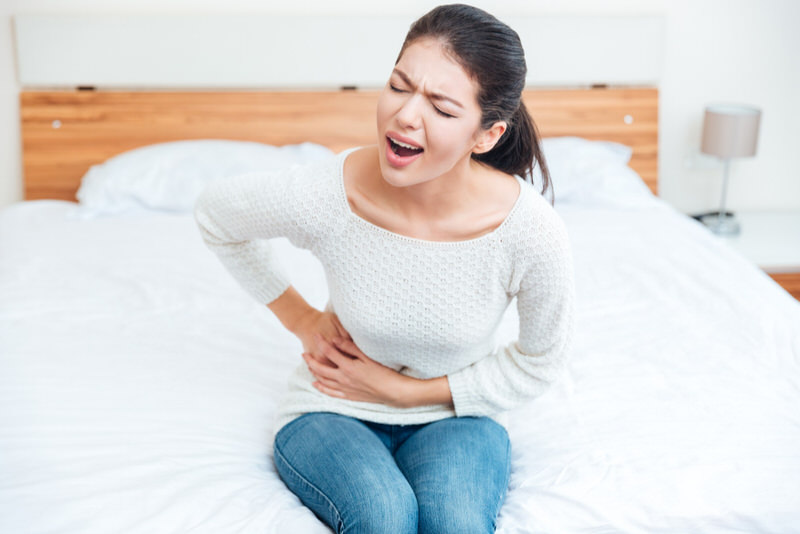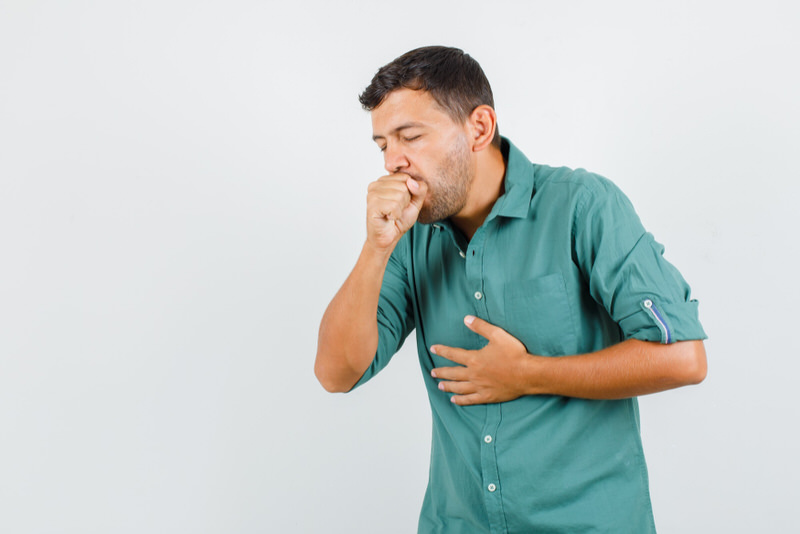The popping sound that we feel in our ribs after continuous coughing signifies an injury to the intercostal muscles or the sternum joints. The ribcage happens to be so sensitive that any strain on its muscles may cause severe pain whenever we cough, bend or even twist. If left untreated, the conditions may cause abdominal pain or back pain. Therefore, you should visit your doctor and have a treatment plan to help ease your discomfort.
Sometimes when we cough, we may experience sharp pain accompanied by a pop sound in the rib area.
Studies show that above 90% of people with persistent coughing may experience popping in their rib cage.
So, what causes this popping in the ribs?
Intercostal muscle straining
When we cough, we tend to stretch and strain our chest cavity. If the intercostal muscles connecting the ribs get strained or pulled, you may experience this popping sound after coughing.
The intercostals muscles support the upper body and aid in breathing.
Coughing makes the intercostal muscles work overtime, resulting in straining or pulling of these delicate tissues. As popping causes health concern in many people, so does the associated pain that accompanies it.
During a cough, the muscles work too hard. This repeated movement caused by the cough may make these muscles pull, stretch and sometimes even tear, causing the disturbing popping you feel in your ribs.
In most cases, when you visit the hospital complaining of the popping or cracking sound in the rib cage, it turns out you have stretched these delicate muscles.
The doctor helps in ruling out the cause of the discomfort and helps with treatment plans.
What are the symptoms associated with strained intercostal muscles?
If you suffer from straining of the intercostal muscles, you may experience the following symptoms.
- A popping sound whenever you cough
- Pain in the rib cage area that tends to worsen after continued movement caused by coughing or a vigorous activity
- You will feel some tension and stiffness in your back muscles
- Your upper muscles feel rigid whenever you bend or twist your upper body
- Sharp pain in your rib cage area and upper body
- Muscles spasms at the intercostal muscles area
- A tender feeling at your rib cage area
What will help in controlling the symptoms of a pulled muscle from coughing?
The popping in your ribs may become bothersome with a persistent cough. If the popping gets associated with the symptoms mentioned above, you need to practice relief measures.
- Try and apply an ice pack on your chest where you may be experiencing the popping
- Limit any physical activity that may cause strain to the intercostal muscles until they recover
- Use cough relieving medication to limit the coughing episodes that may be straining your intercostal muscles
- Visit your doctor for further treatment involving muscle relaxants, lidocaine injection, or physical therapy
- If you experience pain while coughing, use over-the-counter pain-relieving medication
A popped rib condition

The chest cavity has a rib cage that consists of twelve paired ribs. The first seven pairs directly attach to the sternum and get referred to as the “true ribs.” The eighth, ninth, and tenth pairs have a cartilage connection and are called the false ribs.
The eleventh and twelfth get referred to as the floating ribs.
The false ribs being not directly connected to the sternum, get prone to excessive movement. For this reason, they may slip or pop, especially in athletes or people who get to exercise vigorously.
Hypermobility, especially among athletes, results in a popped rib. When the cartilage connecting the “false ribs” break, it may result in this musculoskeletal condition.
When you catch a cough with a propped rib, you get to experience the popping sound on your ribs whenever you cough.
Other times, this condition may result from an injury or trauma. Doctors associate it also with inheritance factors or severe health conditions like bronchitis, asthma, and, in our case, persistent cough.
Other symptoms associated with a popped rib include:
- Clicking or slipping sensation in your lower rib cage area
- Sharp pain on your upper back after coughing that leaves a dull ache
- The popping symptoms worsen after bending, twisting, or turning and any other vigorous activity.
- The affected rib feels tender and painful
- You may experience difficulty breathing
What complications may be associated with a popped rib?
Living with a popped rib may prove difficult, especially for athletes. You may find it difficult to perform physical exercises, cough, turn, twist or do anything that involves bending.
If a popped rib remains untreated, you may experience severe back and abdominal pain. It will be best to walk with your doctor in your recovery journey before resuming athletic activities.
Treatment for a popped rib
When you have a diagnosis for a popped rip, you will need to get the proper medication to help you stay on track once more.
Your doctor may prescribe any of the following medication after confirming that you suffer a popped rib.
- You may be assigned to a physical therapy session
- Use of non-steroidal anti-inflammatory medicines
- You may get intercostal nerve injections that help with pain or any associated inflammation
- Sometimes the doctor may provide an osteopathic manipulative procedure
- Application of heat and cold therapy technique
- Surgery
- Rest
Sternum popping
The muscles or joints neighboring your sternum may cause sternum popping and associated pain in your rib cage area. The sternum, referred to as the breast bone, connects the two sides of the rib cage. An injury to the muscles or joints along the sternum may be causing the popping sound whenever you cough.
What causes sternum popping?
Sternum popping may result from various conditions, which include the following.
- Costochondritis – This condition happens to be the leading cause of sternum popping. Costochondritis refers to the inflammation of the cartilage that connects the ribs to the sternum. This condition might be causing the pop you feel in your ribs when you cough.
The symptoms associated with sternum popping include the following.
- A popping sound on your rib cage when you cough
- Sharp chest pains on the sternum area
- Discomfort occurring on some of your ribs
- The pain or discomfort intensifies when you cough or breathe deeply
- Joint injury
- An injury to the clavicle bone
- Hernias
- Fractures
- Sternum surgery as in open-heart surgeries
Any injury on the sternum or the joints and muscles connecting to this area may cause a popping sound on your rib cage whenever you cough. Other gastrointestinal causes for sternum popping and pain include the following.
- Acid reflux
- Heartburn
- Stomach ulcer
Visiting your physician will help you find the cause of your sternum pain and find the possible treatment plan for your condition.
The table below helps in summarizing the causes for the popping on your ribs whenever you cough.
| Causes for a popping sound on your rib cage whenever you cough | Definition |
|---|---|
| Intercostal muscle strain | A strain that occurs due to excessive coughing on the muscles connecting your false ribs |
| Popped rib | This condition represents a musculoskeletal condition where the cartilage connecting the false ribs breaks. |
| Sternum popping | This popping happens when the muscles or joints connecting the ribs to the sternum get injured or inflamed. |
Frequently Asked Questions (FAQs)
Can you pull a muscle on your ribs from coughing?
When you get a persistent cough, the excessive coughing may pull the intercostal muscles, causing a strain, tear, or injury. This strain may result in a pop whenever you cough.
What happens when you hear a pop on your ribs?
Pop in your ribs signifies that the intercostal muscles or joints connecting the ribs or the sternum have got an injury or strained. This condition causes the ribs to move uncontrollably, possibly colliding or slipping on each other, causing the popping sound.
Can a popped rib heal on its own?
Yes, after resting or taking cough syrup, reducing the strain on the intercostal muscles, the popped rib may heal on its own.
Final thought
Pop in your ribs when you cough signifies an underlying condition related to your rib cage. Finding the exact cause will help find the perfect treatment to help treat the underlying condition.


